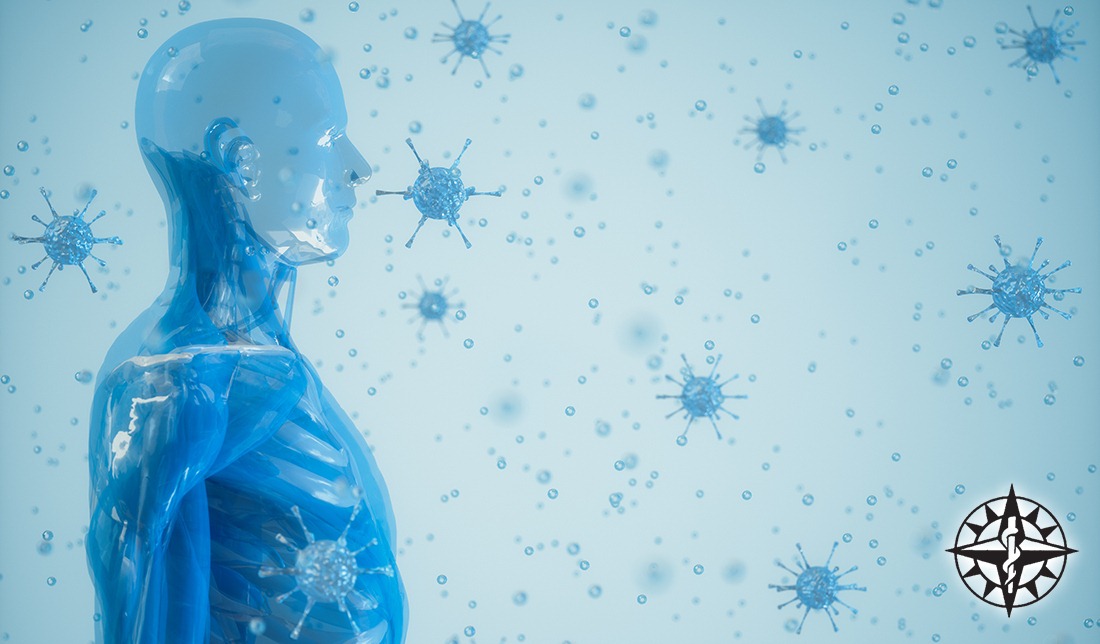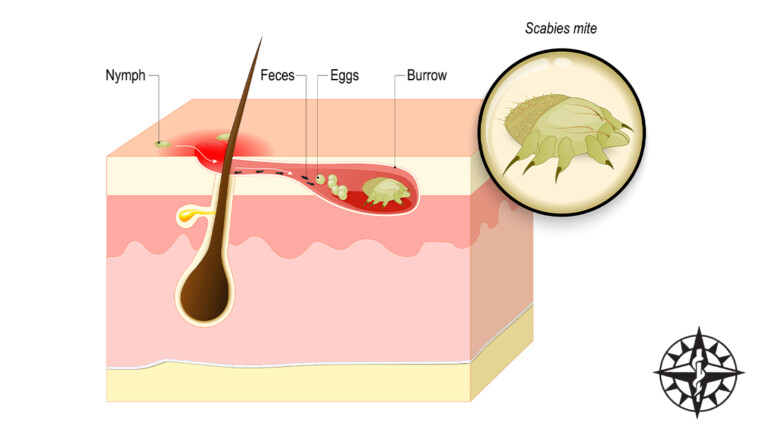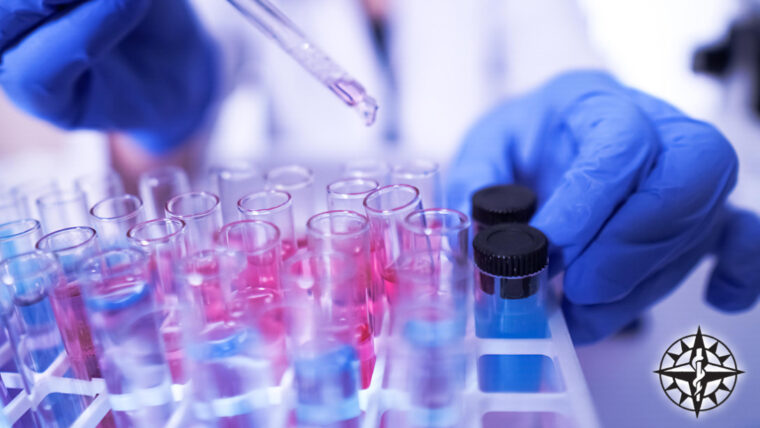Published on: June 22, 2021
The More You Know Just Might Save Your Life
Perhaps you, a loved one or a close friend in Florida is struggling with health issues. Not just a common illness, but something more persistent. It is almost as if you or your loved one just cannot seem to shake it and are simply unable to recover from the illness. To say that this health scenario is unsettling is quite an understatement.
Throughout many tests, doctors’ visits, specialist visits, and lab work the affected person may begin to hear physicians talk about the possibility of a Primary Immunodeficiency (PI) as the underlying cause. Yes, this possibility can be alarming to hear, but it is important to diagnose this disease as early as possible.
Before we jump into exactly what a primary immunodeficiency disease is, let us step back for a moment and do a quick overview of the immune system itself. The immune system is an extremely complex system in our bodies, made up of many different cell types, tissues, and organs that all function together to help protect us from invading pathogens coming in from the world around us.
Immunodeficiency Disorders
With any immunodeficiency disorder, your immune system does not function the way it should, and as a result, you will have difficulty fighting off infection. With the PI Diseases diagnosis, this means that your condition is considered congenital, meaning there is typically a genetic defect that is inherited from one of your parents. There are some cases where the disorder can occur spontaneously, not related to genetics at all, and cause a part of the immune system to not function properly. Either way, the hard truth is that a PI Disease will lead to more severe and recurrent infections.
If you have a primary immunodeficiency disease, you may experience the following:
- Frequent and recurrent pneumonia, bronchitis, sinus infections, ear infections, meningitis, or skin infections
- Inflammation and infection of internal organs
- Blood disorders, such as low platelet counts or anemia
- Digestive problems, such as cramping, loss of appetite, nausea, and diarrhea
- Autoimmune disorders, such as lupus, rheumatoid arthritis, or Type One diabetes
Primary Immunodeficiency Types
There are at least 400 distinct primary immunodeficiency types. Consequently, it can feel extremely overwhelming to try to navigate all of the available information. Your doctor will be able to better provide you with information based on your diagnosis. A small handful of possible disorders include:
- Ataxia Telangiectasia
- DiGeorge Syndrome
- NEMO Deficiency Syndrome
- Wiskott-Aldrich Syndrome
Generally, the various primary immunodeficiency disorders are classified based on what part of your immune system is most heavily impacted.
When a physician or specialist is evaluating a patient for a primary immunodeficiency disease, it is important for the doctor to, first, rule out other causes of secondary immunodeficiency diseases, or simply, other reasons why the patient might be more susceptible to infections. There are a variety of other causes for the patient’s symptoms or secondary immunodeficiency diseases that doctors and specialists will bring into question during an evaluation like this including. They need to rule these out before diagnosing a primary immunodeficiency disease. These diseases may include:
- Comorbidity diseases
- Anatomical abnormalities
- Medications that result in immune suppression
- Other infections either destroy certain parts of the immune system or predispose the patient to a secondary infection.
Knowing the Difference
People just get sick. We know this. The common cold… a strain of the flu virus… sinus infections… seasonal allergies… you name it! It is not, and has never been, uncommon for the general population to get mild, transient, viral upper respiratory infections. For instance, it is widely known that in certain settings like daycares or schools, this occurs quite frequently. It is very important to be able to distinguish between infections like these and the types of primary immunodeficiencies we are describing in this article.
One differentiating factor between common infections and patients who have primary immunodeficiencies is that patients who have a primary immunodeficiency get much more severe infections that are recurrent. “Recurrent” being the keyword there. They also can get infections with bacteria, viruses, and fungi that would not normally cause disease in healthy individuals. Additionally, because of their underlying immune deficiency, it is uncommon for these individuals to show signs of poor growth, under-development, and sadly, even suffer from failure-to-thrive.
Treatment for Primary Immune Deficiency
The treatments for primary immunodeficiencies are broad. They range from simple antibiotics used in preventing infection or to treat a current infection, to biological medications that can be used to augment the immune system. There are also antibody replacement therapies in the form of intravenous immune globulin replacement. In some, even more, severe immune deficiencies, gene therapy or even a full replacement of the immune system may be used. Stem cell transplants may be an option.
If your doctor is concerned that you or a loved one may be struggling with a primary immune deficiency, then your physician will most likely send in for laboratory tests that assess certain types of cells, proteins, or blood samples that are very important for an immune system to function properly. It is very important to diagnose an immune deficiency early since there are such a variety of treatment options available. Early intervention can also help prevent other comorbidities or complications from recurring.
If you are concerned that you may have a primary immune deficiency, we highly encourage you to reach out to your doctor to get a referral to be evaluated by an allergy immunologist or a specialist who focuses on primary immune deficiencies.
Tips on Avoiding Infection
If you do have a primary immune deficiency, other than following the recommendations and guidance provided by your doctor, you must avoid infection. Since your immune system does not respond correctly to outside pathogens, you are far more susceptible to severe reactions and consequences when you get sick, compared to someone with a well-functioning immune system. Here are a few suggestions when trying to avoid infections:
- Keep excellent hygiene. Wash your hands frequently with soap and water, especially after using the bathroom and before eating. Be sure to brush your teeth twice a day as recommended by your dentist to avoid gum infection.
- Eat a balanced diet. Getting the right nutrients will help support your immune system.
- Exercise and get plenty of sleep. Both exercise and good sleeping habits are essential to your immune system’s proper function.
- Avoid people who are sick. This includes keeping a healthy distance from friends and family members who are ill. Also, when possible, it is best to avoid large crowds whenever possible.
- Vaccinate when appropriate. Not all vaccinations will be safe for people with immunodeficiency disorders. We suggest that you talk to your doctor about the option you have given your unique medical situation.
Immunodeficiency and Covid-19 in Florida
Anyone who has an immunodeficiency is unsurprisingly at a much higher risk for contracting Covid-19. Due to the nature of Covid-19, it can be challenging to know who is currently affected without proper testing. Over the last year and more we have witnessed the risk of getting this new virus being much higher for just about everyone. It is recommended by the CDC that if you are an individual at a higher risk for contracting the virus (persons with an immunodeficiency fall into this category!) that you limit your interactions with other people at this time. If it is necessary to be near other people, please take the following precautions:
- Consult with your doctor about the opportunity for one of the Covid-19 vaccinations. As we mentioned before, vaccines are not always agreeable with people who have primary immune deficiencies. However, if you and your doctor agree that it will be safe for you to be vaccinated against Covid-19, then that is your safest approach to staying safe from this virus.
- Wash your hands frequently and for at least 20 seconds.
- Bring hand sanitizer with at least 60% alcohol content with you in case soap and water are not available.
- Wear a clean face mask that covers both your nose and mouth.
- Do your best to keep at least 6 feet of space between you and other people.
- If someone you are interacting with has had Covid-19 symptoms or exposure in the last 14 days, avoid being near this person until they have a negative test result.
- Limit the number of people you interact with.
Primary Immunodeficiency Disease | Infectious Disease Associates of Tampa Bay
Infectious Disease Associates of Tampa Bay (IDATB) is dedicated to providing world-class health care to our patients in the Tampa, FL metro area. If you believe you may have a primary immunodeficiency disease or have noticed any of the above symptoms, we would love the opportunity to consult with you. Please feel free to contact us at 813-251-8444. We look forward to hearing from you.





